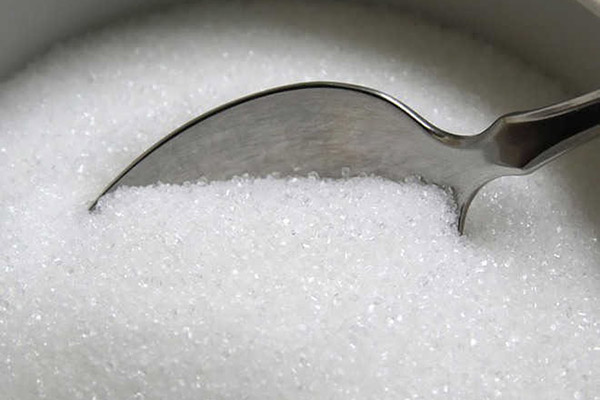Sugar is often the sweet culprit we can’t resist, sneaking its way into our lives through tantalizing treats and comforting beverages. But have you ever heard the claim that too much sugar can stunt your growth? It’s like a strange thought that’s been there since you were a kid. Grown-ups who care about you might have mentioned it while taking away your sweets. Today, we will take a closer look at this sugary myth.
What is sugar?
Sugar is a type of carbohydrate that is naturally found in various foods and is also used as an additive in many processed foods and beverages. It is a simple compound made up of carbon, hydrogen, and oxygen atoms. Sugar molecules are important sources of energy for the body’s cells and are used in various physiological processes.
There are different types of sugars, including:
- Glucose: Often referred to as blood sugar, glucose is the primary source of energy for the body’s cells. It’s absorbed into the bloodstream after eating carbohydrates and is used for immediate energy or stored in the liver and muscles for later use.
- Fructose: Found in fruits, honey, and some vegetables, fructose is a naturally occurring sugar. It is metabolized differently from glucose and is primarily processed by the liver.
- Sucrose: Sucrose, also referred to as table sugar, is composed of the molecules glucose and fructose. As a sweetener, it is frequently produced from sugarcane or sugar beets.
- Lactose: Dairy products, like milk, contain this sugar. It is made up of molecules of galactose and glucose joined together.
- Maltose: Formed by two glucose molecules linked together, maltose is present in some grains and is a product of starch digestion.

How does sugar affect the body?
Sugar can have various effects on the body, both positive and negative, depending on the type of sugar consumed and the amount consumed. Here are some ways in which sugar affects the body:
Positive effects:
- Energy source: Sugars, especially glucose, serve as a quick and easily accessible source of energy for the body’s cells, particularly the brain and muscles.
- Brain function: Glucose is essential for brain function. It provides fuel for cognitive processes, memory, and concentration.
- Endorphin release: Eating sugary foods can trigger the release of endorphins, which are chemicals in the brain that induce feelings of pleasure and happiness.
Negative effects:
- Weight gain and obesity: Excessive consumption of added sugars can contribute to weight gain and obesity. High-sugar diets can lead to an overabundance of calories and increase the risk of developing metabolic syndrome.
- Type 2 diabetes: Over time, consuming too much sugar can cause insulin resistance, which is a condition where cells lose their receptivity to the hormone insulin. Type 2 diabetes may eventually emerge from this.
- Dental health issues: Sugar feeds harmful bacteria in the mouth, leading to the production of acids that erode tooth enamel and cause cavities.
- Heart health: Diets high in added sugars have been linked to an increased risk of heart disease. They can contribute to high blood pressure, inflammation, and unhealthy cholesterol levels.
- Blood sugar spikes and crashes: Consuming large amounts of simple sugars can cause rapid spikes in blood sugar levels, which can lead to feelings of fatigue, irritability, and increased hunger.
What is the recommended daily intake of sugar?
The World Health Organization (WHO) recommends that added sugars make up less than 10% of total daily energy intake. A further reduction to below 5% of total daily energy intake is suggested for additional health benefits.
For an average adult with a normal body mass index (BMI), this translates to about 25 grams (around 6 teaspoons) of added sugar per day. The recommended sugar intake for little kids and teenagers is generally in line with the guidelines for adults.
Does sugar actually stunt your growth?
Sugar itself doesn’t have a direct impact on the physical growth of bones and tissues. However, there is an indirect relationship between nutrition and growth that’s worth considering.
Excessive consumption of sugary foods and beverages can lead to poor overall nutrition. When people consume large amounts of sugary items, they might be displacing nutrient-rich foods from their diet. This could potentially impact growth and development, especially in children and adolescents, who have higher nutrient needs during their growth years.
For example, if a child consistently fills up on sugary snacks and drinks and doesn’t get enough nutrients from fruits, vegetables, proteins, and dairy, their overall growth and development might be affected because they’re missing out on essential vitamins, minerals, and other nutrients needed for proper growth.
In addition, excessive consumption of sugary drinks might contribute to weight gain or obesity, which could potentially affect growth trajectories in some cases. However, this isn’t a direct effect of sugar on bone growth; it’s more about the impact of poor dietary habits on overall health.

What are some healthy sources of sugar?
Fruits
Fruits are a delightful gift from nature, packed with a harmonious blend of fiber, vitamins, antioxidants, and natural sugars, such as fructose. These natural sugars are accompanied by a plethora of nutrients that support overall well-being. From the tangy burst of berries to the refreshing sweetness of apples, oranges, bananas, and pears, the fruit kingdom offers a diverse range of flavors and health benefits.
Vegetables
Surprisingly, certain vegetables also contribute their touch of sweetness along with a treasure trove of essential nutrients. Carrots, sweet potatoes, and bell peppers, for instance, not only add vibrant colors to your plate but also provide a subtle hint of natural sugars. These vegetables offer a unique way to satisfy your sweet tooth while loading up on valuable vitamins and minerals.
Dairy products
Dairy products, such as milk and plain yogurt, introduce us to another natural sugar: lactose. Alongside this naturally occurring sugar, these products bring essential calcium, protein, and a host of other nutrients to the table. They not only cater to your taste for sweetness but also contribute to strong bones and overall health.
Honey
Honey, often referred to as liquid gold, offers a natural sweetness that’s been cherished for centuries. While it boasts numerous health benefits and antioxidants, it’s important to remember that honey is still high in sugar content. Therefore, moderation is key to enjoying its unique flavor while maintaining a balanced diet.
Maple syrup
In the world of natural sweeteners, maple syrup stands tall. With its distinctive taste and trace minerals, it provides an alternative to refined sugars. Just like honey, it should be used in moderation. Its antioxidants and nutritional value make it a healthier choice compared to processed sweeteners.
Dates
Dates are a remarkable whole fruit that offers both natural sugars and fiber. This combination results in a gradual release of energy, making them an excellent natural sweetener for recipes. Their rich, caramel-like flavor adds depth to dishes while contributing to your daily fiber intake.
Unsweetened applesauce
Replacing sugar in baking and cooking can be made easier with unsweetened applesauce. It not only brings natural sweetness to your creations but also infuses them with the goodness of apples. Opting for unsweetened versions ensures you’re avoiding unnecessary extra sugars.
Whole grains
Whole grains, such as oats and quinoa, are more than just sources of complex carbohydrates. As these carbohydrates break down slowly, they provide a steady release of sugars into your bloodstream, offering sustained energy throughout the day. This makes whole grains an excellent choice for those seeking a balanced energy source.
In conclusion,
While the notion that sugar directly stunts growth is not entirely accurate, there are indirect ways in which excessive sugar consumption can impact growth and overall health. The relationship between nutrition and growth is complex, and it’s important to consider the broader context of dietary habits. Consuming too much sugar, especially from sources devoid of essential nutrients, can lead to poor overall nutrition, which might indirectly affect growth and development, particularly in children and adolescents. Balanced diets that include a variety of nutrient-rich foods are essential for healthy growth. Rather than demonizing sugar entirely, the key lies in moderation, making informed dietary choices, and promoting a well-rounded lifestyle that supports optimal growth and well-being.
Deliventura
- Related post: Average Height For Men In The US



